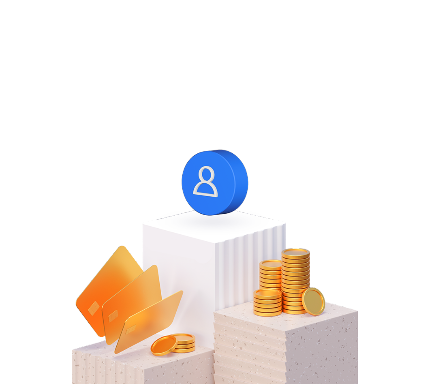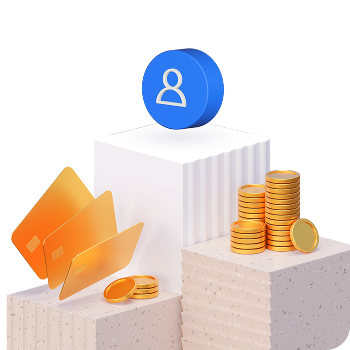How to Become a Day Trader?

6 minutes for reading
Traders can be compared to drivers: some drive fast, while some move around in no hurry. Beginners face some engine malfunctions in the middle of traffic and freak out when having to drive at the countryside. Some enjoy driving at night while for others, such driving is a challenge.
There are as many trading options as driving experiences in the example above. Some trade intraday, some prefer week charts and wait for their trades for months, while stock investors can wait for their profit for years.
This article is devoted to day traders - those who try to squeeze all the juices out of the market over a short time.
Who is a day trader?
A day trader is a one who makes a lot of trades during the day to make maximum profit on short-term market fluctuations. As a rule, positions are held for several seconds to several hours but are always closed before the end of the day not to transfer risks to the night-time or non-working hours of the platform.
How to become a day trader?
Trading intraday needs knowledge, experience, emotional stability, and the ability to make decisions fast. All this can be acquired with time; however, do not rush at the market right after you learnt some tech analysis or got trained in trading psychology. Only all of these aspects taken together make any sense.
If you want to become a day trader, keep in mind the following:
Practical knowledge
You need an excellent understanding of tech analysis and all instruments used for analyzing graphic patterns, trade volume, and trend direction.
Among the most wide-spread indicators used by short-term traders, there are support/resistance levels, the MACD for divergences, the Moving Average, etc.
Some traders would use ready-made trading systems based on a combination of indicators, while others would trade graphic patterns on small timeframes; a separate category trades based on their experience and instinct.
Choosing your assets
For short-term trading, it is vital that the price was unstable, and its intraday mean range was large. A stock or Forex currency pair must fluctuate enough for a day trader to make a profit on these fluctuations. The volume and liquidity of your instrument are crucial because you need to open and close positions fast.
Hence, stocks with a small day mean range and small day trading volumes will be of little interest to a short-term trader.
Fundamental events
The emergence of important news can increase market volatility, and prices will start fluctuating too much. A day trader must be prepared for such a situation. At the start of the trading day, study the economic calendar and single out important publications with their publishing time.
There are two options then:
You can abstain from trading when some news appear that can influence the technical picture in the market, especially on small TFs. Otherwise, you can go on trading as before, hardly caring for the news because some fresh information can equally send the price in the direction you need.
An important detail: trading news can also belong to day trading. This is a strategy based on fundamental analysis and using economic events as entry and exit market signals. If you trade intraday by the strategy, follow the advice from this section just vice versa.
Risk and money management
An intrinsic part of short-term trading is managing your risks and capital. Here, you need to realize that a day trader uses small price movements, so when the market reverses against them, the main idea will be closing the position and accepting your loss instead of waiting for a reversal.
Hence, in day trading you must always place a Stop Loss and Take Profit, no matter how high the quality of the situation might seem to you.
Sometimes you may try aggressive methods of money management, such as the Martingale, or more conservative approaches, such as the Anti-martingale or the Fixed Fraction method.
Day trading: advantages and drawbacks
In the stock market, the advantage of short-term trading is the fact that positions are not influenced by the probability of negative night events that can disturb the price noticeably. Such news might be important profit and losses reports, as well as the information about an increase or decrease in the rating of information agencies. Such news normally emerge before the market opens or after it closes.
Trading currency pairs, the day trader is also insured from drastic price movements against them at night time, when news emerge. The trader's dream will be as calm as ever, and they will not rush at checking the terminal and their trades right upon waking up.
Apart from these peculiarities, day trading gives more crucial advantages, relatively small Stop Losses among them. This way you will not lose too much in one trade.
However, short-term trading entails certain risks. Among them - increased expenses (you pay a commission fee or spread per each trade), as well as little time in positions, which prevents you from increasing positive results.
Summing up the above said:
Advantages of day trading:
- As a rule, positions close before the trading day is over, so you avoid risks connected to the emergence of news out of the trading session or at night.
- Close SLs protect you from strong countering movements.
- Day traders have access to higher leverage and use it actively.
- Intense day trading helps get and accumulate trading experience fast.
Drawbacks of day trading:
- Frequent trades make the trader pay more fees and spreads.
- Some assets are unavailable for short-term trades.
- The trader cannot let their profit grow because this goes against their trading principles.
- Losses can grow fast due to the large leverage.
Bottom line
Day trading entails increased psychological load that, however, decreases with time. To be always with a profit, a day trader needs to make a lot of trades every day and trail a lot of trading instruments, have deep knowledge of tech analysis and make trading decisions fast.
Day trading is not a path for beginners, but neither it is an unachievable elite group. Follow its principles, practice on demo accounts, train your psychological stability, and you will succeed.









